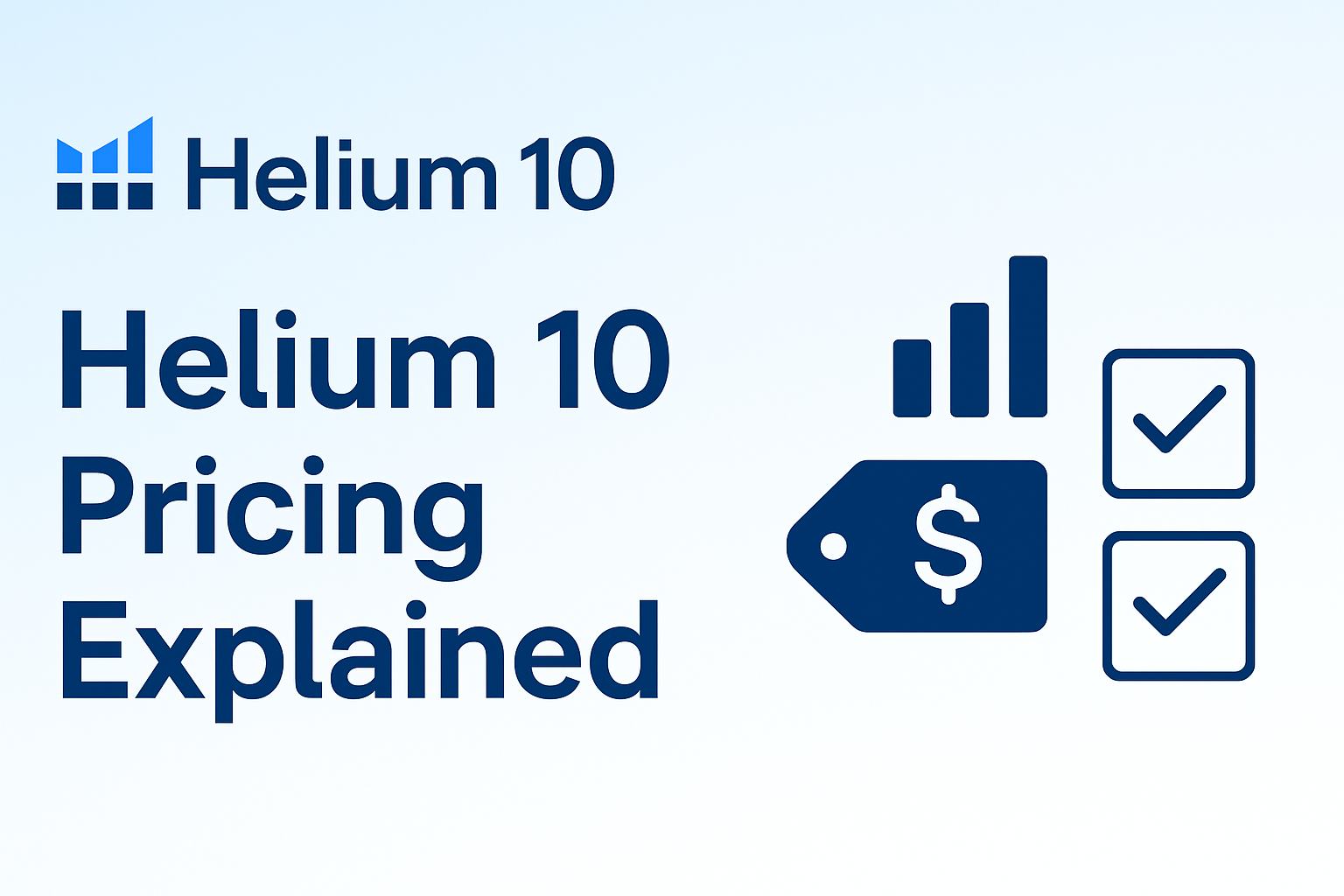Learning a new language brings the chance to explore new cultures, gain fresh experiences, and boost career prospects. In today’s digital world, language learning apps are widely used because they are easy to access, affordable, and use creative teaching methods.
Two of the most popular apps are Rosetta Stone and Babbel. Both claim to help users become fluent, but each takes a different approach and offers unique features.
This comparison will cover ten key points to help you decide which option is better, ultimately showing why Rosetta Stone may be the better choice for most learners.
🧠 Rosetta Stone vs. Babbel – Product Description
Rosetta Stone
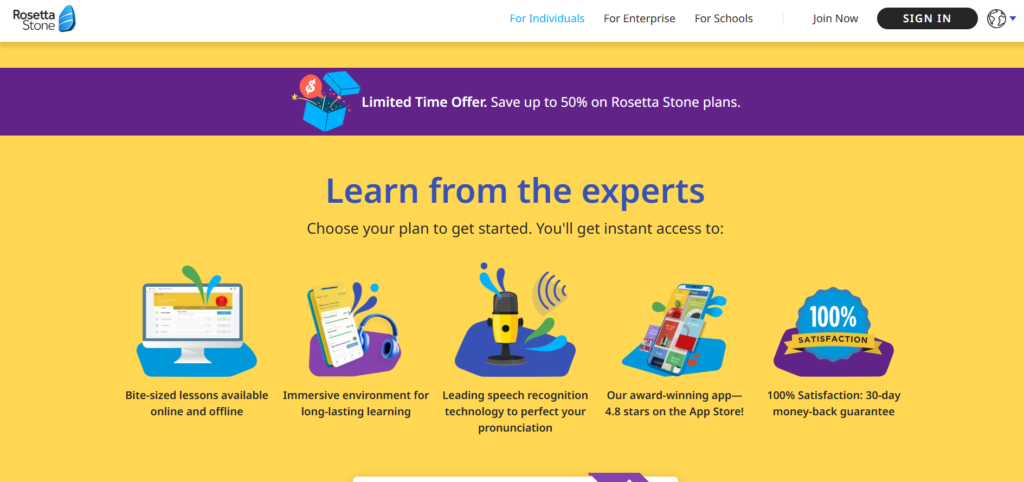
Rosetta Stone is a fully immersive language learning platform designed to help you think and speak in your new language naturally. Rather than relying on translations or grammar drills, Rosetta Stone teaches you the way a child learns their first language—through visuals, repetition, and real-world context. With lessons that focus on listening, speaking, reading, and pronunciation, it offers a holistic approach to becoming fluent. Its standout feature is TruAccent™, a patented speech recognition tool that helps you perfect your pronunciation with native-like precision.
You can choose from 25+ languages, and access lessons both online and offline across devices. The clean, distraction-free interface makes learning feel smooth and intuitive. Whether you’re a beginner or an advanced learner, Rosetta Stone adapts to your pace and goals, helping you build a lasting foundation.
Best For: Serious learners, travelers, professionals, or anyone who wants to truly master a new language through natural immersion.
Babbel
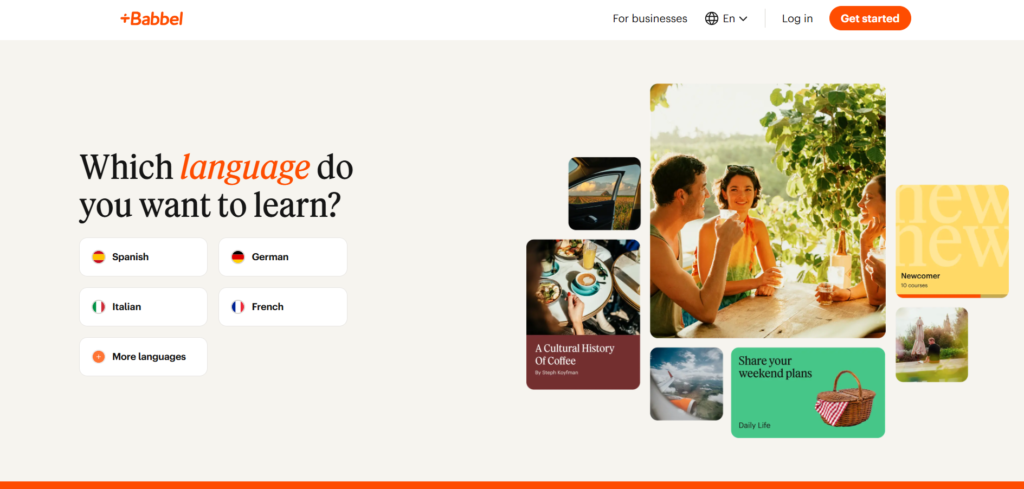
Babbel is a language learning app focused on teaching you practical conversation skills for real-life use. It’s known for its short, structured lessons, usually around 10-15 minutes, which include vocabulary, grammar tips, and cultural context. Unlike Rosetta Stone, Babbel uses direct translations and grammar explanations in your native language to make learning clearer and quicker.
Babbel covers 14 languages, mostly European, and lessons are designed by linguists with an emphasis on everyday dialogue. The interface is friendly and the app offers personalized reviews to reinforce what you’ve learned. It’s a great tool for beginners or busy learners who want to pick up useful phrases fast.
Best For: Casual learners, travelers, or people who enjoy short lessons and prefer a grammar-based approach.
1. Learning Methodology
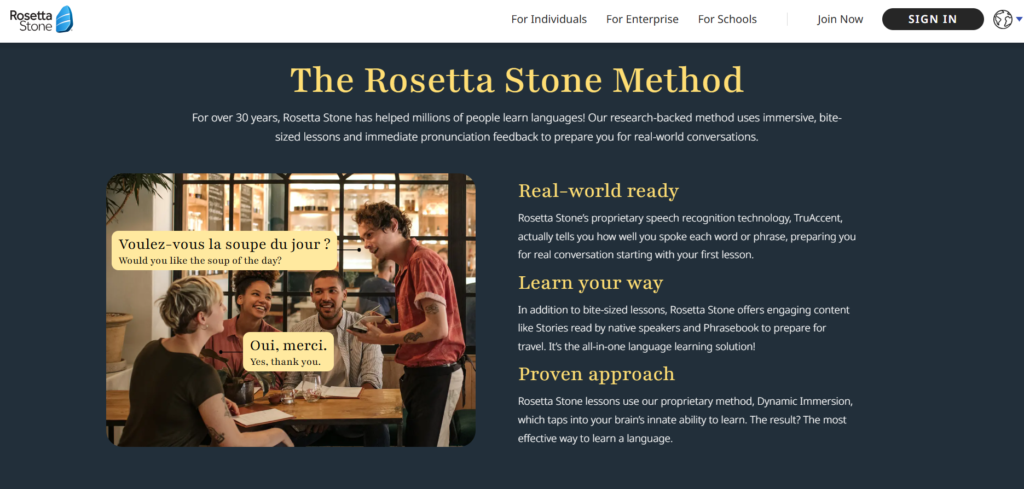
Rosetta Stone employs a Dynamic Immersion method, teaching through context without translations. This approach mirrors natural language acquisition, encouraging learners to think in the new language from the outset. By associating words with images and sounds, it fosters intuitive understanding.
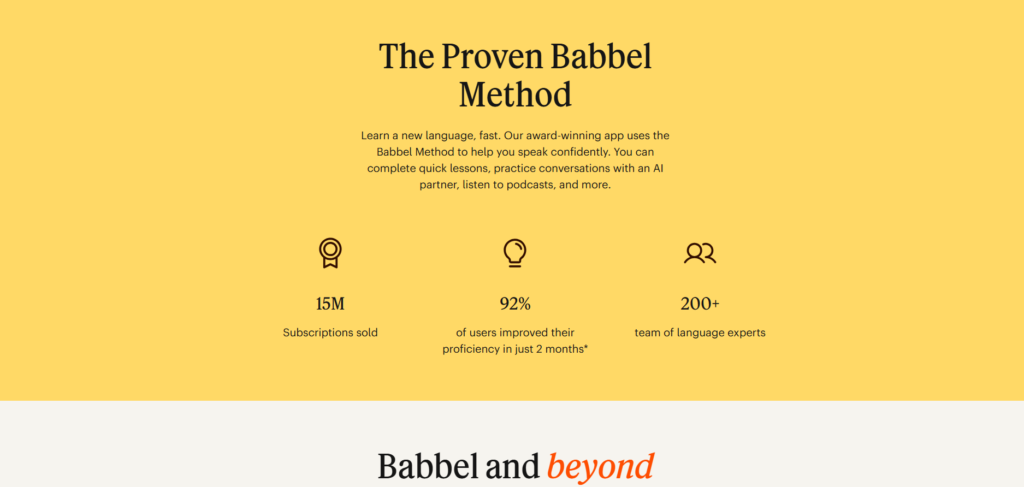
Babbel, on the other hand, uses a structured approach that combines grammar explanations with vocabulary and dialogues. Lessons are tailored to real-life situations, emphasizing conversational skills and cultural nuances.
Verdict: If you prefer an immersive experience that mirrors natural language learning, Rosetta Stone’s methodology may be more effective.
2. Language Offerings
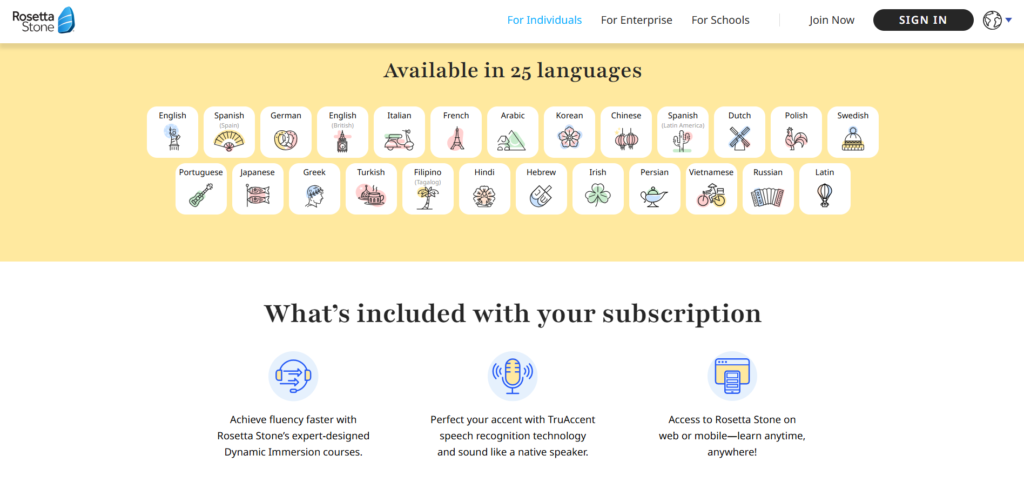
Rosetta Stone offers courses in 25 languages, including less commonly taught ones like Swahili and Tagalog. This extensive range caters to diverse linguistic interests.
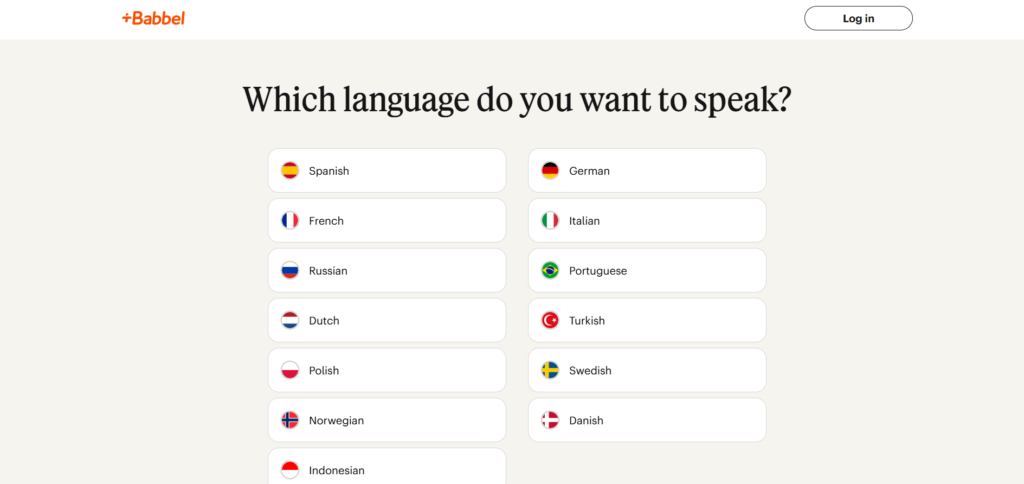
Babbel provides instruction in 14 languages, focusing primarily on European languages such as Spanish, French, and German.
Verdict: For a broader selection of languages, especially less common ones, Rosetta Stone has the advantage.
3. Lesson Structure and Content
Rosetta Stone‘s lessons are image-heavy and focus on pattern recognition, promoting intuitive learning. The absence of translations encourages learners to deduce meanings through context.
Babbel‘s lessons are concise, ranging from 10-15 minutes, and include a variety of exercises like fill-in-the-blanks and matching pairs. Grammar rules are explained explicitly, aiding in understanding.
Verdict: For learners who enjoy visual learning and can dedicate longer periods to study, Rosetta Stone’s structure may be more beneficial.
4. Speech Recognition Technology
Rosetta Stone features TruAccent™, a patented speech recognition technology designed to provide precise pronunciation feedback. This tool helps learners fine-tune their speaking skills to match native speakers.
Babbel includes speech recognition in its lessons, though some users find it less sensitive compared to Rosetta Stone’s system.
Verdict: For more accurate and immediate pronunciation feedback, Rosetta Stone’s technology stands out.
5. Supplementary Materials
Rosetta Stone offers a range of additional resources, including phrasebooks, stories, and audio companions, to reinforce learning. These materials cater to various learning styles and preferences.
Babbel provides podcasts and games to complement lessons, focusing on practical conversation skills.
Verdict: If you’re looking for a comprehensive suite of supplementary materials, Rosetta Stone provides a more extensive selection.
6. User Interface and Experience
Rosetta Stone features a clean, intuitive interface that emphasizes visuals and minimizes distractions. The design supports its immersive learning approach.
Babbel offers a user-friendly platform with clear instructions and a straightforward layout, making it accessible for beginners.
Verdict: Both platforms provide excellent user experiences, but Rosetta Stone’s design may appeal more to visual learners.
7. Cultural Context and Real-Life Application
Rosetta Stone focuses on language structure and vocabulary without much emphasis on cultural context. Its primary goal is to build a strong linguistic foundation.
Babbel integrates cultural notes and real-life dialogues to prepare learners for practical conversations, offering insights into cultural nuances.
Verdict: For learners interested in cultural nuances and everyday language use, Babbel offers more contextual learning.
8. Pricing and Subscription Options
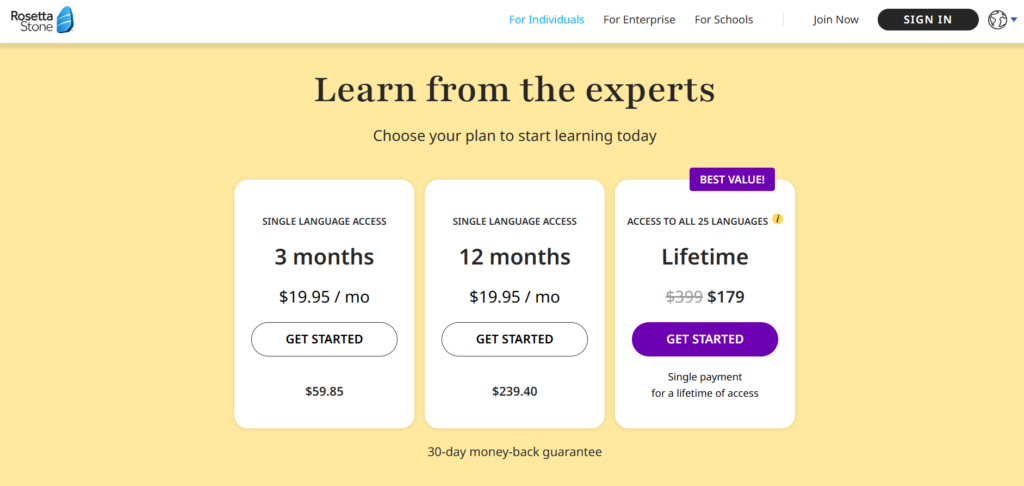
Rosetta Stone offers various subscription plans, including a lifetime option that provides access to all languages. This can be cost-effective for long-term learners.
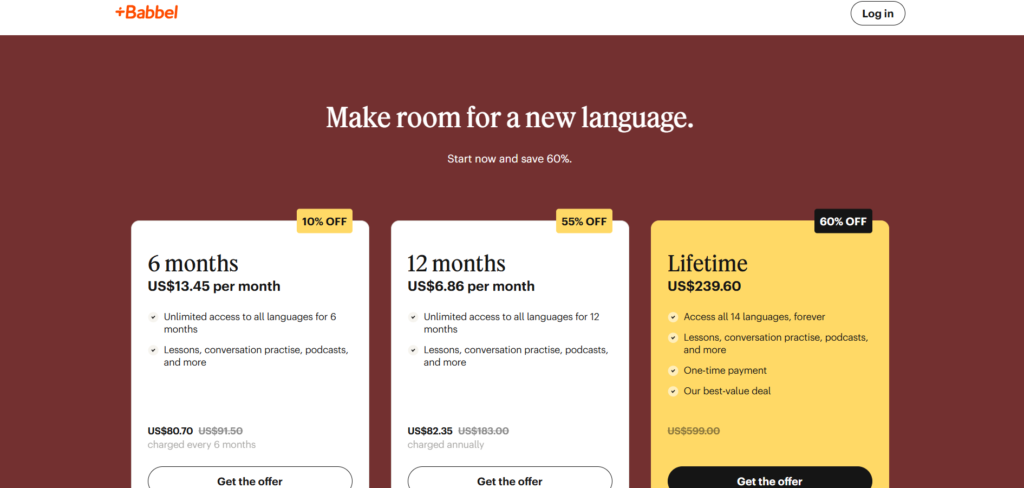
Babbel provides subscription plans with access to one language per subscription, with no lifetime option.
Verdict: For long-term learners or those interested in multiple languages, Rosetta Stone’s lifetime plan offers better value.
9. Progress Tracking and Review
Rosetta Stone includes periodic reviews and assessments to track progress, though some users find them less frequent.
Babbel emphasizes daily review sessions to reinforce vocabulary and grammar, aiding in retention.
Verdict: If consistent review and reinforcement are important to you, Babbel’s approach may be more effective.
10. Overall Effectiveness and User Satisfaction
Rosetta Stone is highly regarded for its immersive approach and comprehensive language offerings, making it suitable for serious learners.
Babbel is praised for its practical lessons and user-friendly design, appealing to casual learners seeking conversational skills.
Verdict: For a deep, immersive learning experience that builds a strong foundation, Rosetta Stone is often the preferred choice among dedicated language learners.
Conclusion
Both Rosetta Stone and Babbel have their strengths and cater to different learning preferences. If you’re looking for an immersive, comprehensive language learning experience with a wide range of languages and robust supplementary materials, Rosetta Stone stands out as the superior choice. Its intuitive approach and emphasis on visual learning make it particularly effective for those committed to achieving fluency.
FAQ’s
Which app uses full immersion for language learning?
Rosetta Stone teaches through full immersion without translations.
Which app focuses on grammar explanations in English?
Babbel includes direct grammar tips and translations in English.
Which app is better for pronunciation practice?
Rosetta Stone uses TruAccent™ for accurate pronunciation feedback.
Which app offers more languages to learn?
Rosetta Stone offers over 25 languages, while Babbel has 14.
Which app is better for casual travelers who need basic phrases?
Babbel is more suited for learning practical, everyday phrases quickly.

